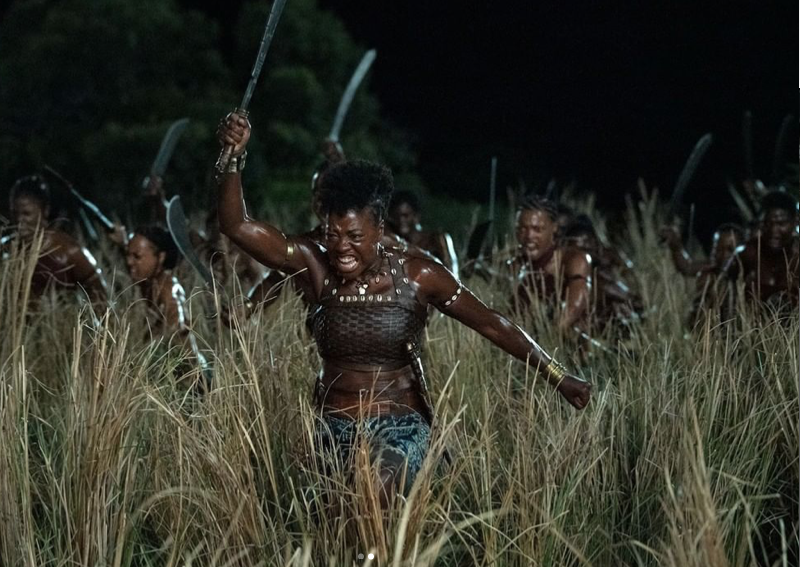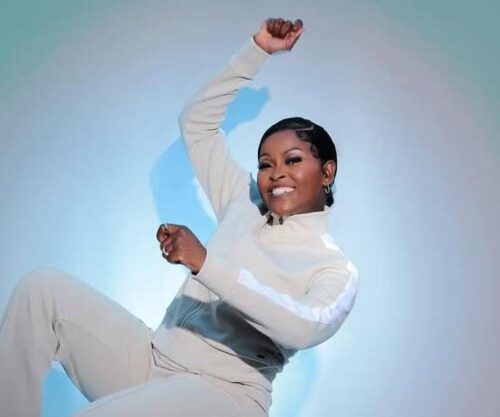
Benin’s historic female warriors known as the Amazons of Dahomey are legendary across West Africa and a Hollywood production is bringing them back into the limelight.
The Woman King, released last Friday and shown at one Cotonou’s few cinemas on Saturday, is inspired by the story of the Agojie women who protected the ancient Kingdom of Dahomey and fought against French colonial troops in the 19th century.
The main character General Nanisca is played by the Oscar-winning American actress Viola Davis, who trains the next generation of recruits against a rival African kingdom and European slave traders.
The production directed by Gina Prince-Bythewood and mainly filmed in South Africa has won praise for its leading roles for black actresses, but has also generated criticism that it glorifies slavery.
At the premiere in Benin’s economic capital, a descendant of Ghezo, a King of Dahomey, who attended the screening at Canal Olympia cinema, shed tears during the viewing.
‘For the princess that I am, some of the scenes were very touching. These brave women gave their lives to protect Ghezo’s heritage, which is my own,’ said 37-year-old Sylvine Senami Ghezo.
A younger viewer, 15-year-old Bahunde Efanam, was also emotional and said the film gave her “shivers”.
The Amazons of Dahomey have been celebrated many times before, including in the 2018 film Black Panther in which they inspired Wakanda’s Dora Milaje warriors.
More recently, Benin’s President Patrice Talon unveiled a giant 30-metre high bronze statue representing an Amazon in central Cotonou.
The government said it chose the figure as a symbol of national identity and key part of its history to showcase in a bid to attract tourists.
Tourism
Made by Chinese artist Li Xiangqun, ‘the statue will be, for us and those who visit, a symbol of the Beninese woman of yesterday, today and tomorrow’, the president said of the display in July.
‘What is important is that in Benin, the words courage, bravery, strength, combativenesses and honour are not exclusively associated with men,’ said the president.
For those working in the nation’s budding tourism industry like Achille Remy Yelouassi who was at the premiere, the hope is also that films like The Woman King “help put Benin on the map”.
Some said the next film should be made in Benin and not Hollywood since it concerns the country’s history.
In the United States, some have criticised the movie for not addressing the role Dahomey Kingdom played in the slave trade. #Boycottwomanking has been trending on Twitter.
But for some Beninese women, the film can also help tackle issues around women’s rights according to Senami Totin, a lawyer and activist in the country.
‘In a patriarchal society like we have in Benin, you need a lot of courage and determination to defend women’s rights,” she said, listing challenges from impunity for rape, forced marriages, exclusion of women from inheritance rights, and a lack of representation in politics.
‘We no longer have to fight wars against enemy armies but the fight for women’s emancipation is a daily one, and for that, we have to have an Amazon spirit,’ she added.
In addition to celebrating the Beninese woman, actress Viola Davis said she hopes the film also inspires young girls around the world.
‘It’s for my six-year old self… the little girl who was traumatised, the little girl who was called ugly, the little girl who wasn’t seen, who was left invisible,’ she told reporters before the Toronto premiere earlier this month.
‘I see you Viola. I see every chocolate girl who is like you. I’m telling you to stop running. This is my gift to you.’
WATCH:
Source: AFP




